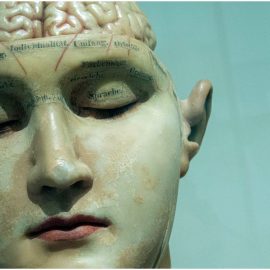

This article is an excerpt from the Shortform book guide to "Darwin's Dangerous Idea" by Daniel C. Dennett. Shortform has the world's best summaries and analyses of books you should be reading.
Like this article? Sign up for a free trial here.
What drives the evolution of human culture? How do ideas spread and transform across generations?
According to Daniel Dennett, memes are the cultural equivalent of genes. Like genes in biological evolution, memes are units of culture that replicate, mutate, and compete for survival in the realm of human ideas and behaviors.
Continue reading to explore how memetic evolution shapes our societies, from the evolution of music genres to the development of scientific knowledge.
Daniel Dennett on Memes
According to Daniel Dennett, memes are units of cultural transmission—just as genes propagate through biological replication. “Meme” is a term coined by Richard Dawkins in The Selfish Gene. This concept of memetic evolution posits that evolution offers an intriguing explanation for humankind’s unique culture and achievements: The Darwinian principles that drive biological evolution can also be applied to cultural evolution.
Memes spread through the selective adoption and transmission of ideas, behaviors, and thought patterns. Just as with genes, some memes replicate successfully while others don’t; some even mutate into forms that increase their transmissibility. This is because certain characteristics enhance their survival and replication chances, similar to genetic fitness.
This memetic evolution, Dennett argues, is the engine behind humanity’s unique cultural capabilities. Our ability to pass on knowledge, overcome physical limitations, and consciously shape our individual and collective futures can be understood as the product of memes replicating, mutating, and being selected for within human societies.
For example, the blues originated in African-American communities in the United States and were then incorporated into various other genres like rock, jazz, and pop music. This mutation—or adaptation to new environments—increased the style’s transmissibility by making it appealing to a wider audience.
| Cultures Evolve With Memes In The Beginning of Infinity, physicist David Deutsch expands on the idea that cultures are built on successful memes. Deutsch identifies two different types of memes and the cultures that come from them: Rational memes are beneficial, based in knowledge, and encourage people to continue building knowledge. For example, the theory of gravity is a rational meme: It’s based on our current best understanding of reality, and it replicates because we keep teaching new generations about gravity. Rational memes create dynamic cultures, which change and evolve as the memes within them do. Anti-rational memes suppress thought and creativity. They replicate via blind devotion and intolerance for questions or doubts. Anti-rational memes lead to static cultures, which maintain stability by forbidding change. For example, many orthodox religious sects are static cultures: All members must believe the same things and perform the same rituals, generation after generation. Deutsch adds that static cultures are doomed to collapse sooner or later; their inability to create new knowledge means that they can’t respond to unforeseen dangers, and eventually one such danger or another will destroy them. |
The Memetic Evolution of Morality
Dennett writes that just as culture can be understood as an evolution of memes, so can morality: Our understanding of right and wrong, ethics, and altruism aren’t divine gifts but are instead transmitted culturally. We learn these behaviors from those around us, absorbing them as part of our cultural upbringing.
Dennett writes that an evolutionary or memetic explanation for our moral systems can be traced back to reciprocity: the practice of exchanging actions, goods, or services with others for mutual benefit. It’s a fundamental social behavior where individuals cooperate and help each other with the expectation that such actions will be returned in kind.
In early human societies, reciprocity might have manifested in the sharing of food after a successful hunt. For example, a skilled hunter who brought down a large animal would share the meat with others in the group, knowing that when he failed to catch prey in the future, those same individuals would share their own successful hunts with him. This mutual exchange ensured a more consistent food supply for everyone, increasing the entire group’s chances of survival.
From this foundation of mutual exchange and benefit, more intricate moral concepts like fairness, trust, and cooperation gradually emerged. Dennett posits that successful moral ideas formed memes that spread and evolved within cultures much like genes do in biological evolution. He further writes that this perspective helps explain the diversity of moral systems across different cultures, as these ideas would have evolved differently in varying cultural contexts—just as, as we’ve explored, environmental pressures in the physical environment influence which genetic mutations survive and which don’t.
Memetic Evolution and Free Will
Dennett doesn’t view this memetic understanding of human cognition as negating free will or individual autonomy. He argues instead that individuals play an active role in choosing which memes they absorb and adopt. We’re not passive receptacles for cultural information—we’re active participants in selecting, interpreting, and integrating memes into our worldview. Once absorbed, the memes don’t simply control us. We process them, combine them with other ideas, and apply them in novel ways. This process, he writes, is a form of individual agency.
| Is the Future Predetermined? In A Brief History of Time, Stephen Hawking explores the connection between science and free will, arguing that the predictive nature of physics weakens the argument that free will exists. Hawking notes that scientific theories allow us to model the behavior of objects and make predictions about future observations or the outcomes of experiments. He points out that if we could formulate a unified theory of physics that could be applied in any context, then if we knew the exact state of the entire universe at any point in time, we could use the theory to predict the state of the universe at any other time. This would mean human free will is an illusion, since we could calculate everyone’s future actions. Hawking refers to this as “scientific determinism.” However, Hawking also discusses three limitations of scientific determinism: Scientists have not yet been able to find a unifying theory of physics. The theory of quantum mechanics (one of the major theories in modern physics) gives results in terms of probability, rather than deterministic results. The uncertainty principle of quantum mechanics limits our ability to measure the state of the universe at any given time, so even if you had a unified, deterministic theory, you couldn’t measure the present state of the universe accurately enough to exactly predict its future state. |

———End of Preview———
Like what you just read? Read the rest of the world's best book summary and analysis of Daniel C. Dennett's "Darwin's Dangerous Idea" at Shortform.
Here's what you'll find in our full Darwin's Dangerous Idea summary:
- An exploration of the impact of Charles Darwin's theory of evolution by natural selection
- How the theory of evolution eliminates the need for a divine creator
- That the vast majority of gene mutations are harmful rather than helpful






